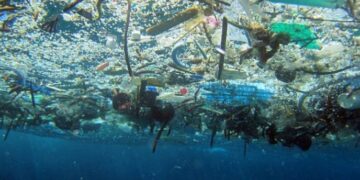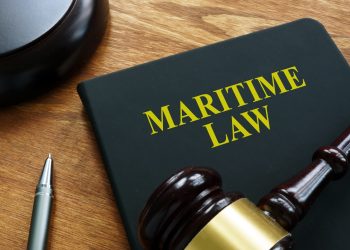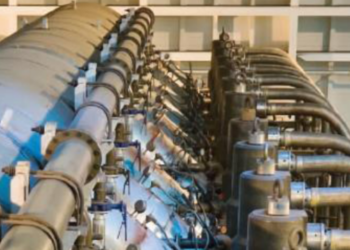In its monthly Safety Scenario for October, the Swedish Club describes an incident of machinery failure onboard due to contaminations of the lubrication system. An investigation showed that the engine had been operated on a high thermal load for a long time and the turbocharger’s efficiency had been affected by fouling, while the lubrication oil had been contaminated for some time.
The incident
The vessel was at anchor, in ballast, awaiting further instructions. The weather deteriorated after seven days and the vessel´s anchor dragged. The anchor was heaved up and the vessel started to slow steam in the area. After about 24 hours, the differential pressure alarm of the main engine duplex lubrication oil filter sounded in the ECR. The crew found aluminium and other metal inside the lubrication filter. Metal particles were also found in the main engine’s crankcase.
After consulting the owner, it was decided that the vessel should be towed to a lay-by berth. The investigation alongside revealed that the metal parts found in the lubrication oil filters came from piston rings and piston skirts. Three pistons had almost seized. The main engine, a 6-cylinder medium speed type, was severely damage and the following parts had to be renewed: all the cylinder liners, 3 complete pistons, piston rings on all cylinders, all the main and connecting rod bearings. In addition, the turbocharger had to be overhauled as the nozzle ring was broken. The complete lubrication system had to be carefully cleaned and flushed.
Findings
- At the time of the casualty the main engine, including the turbocharger, had been running for 7,300 hours since the previous major overhaul. This overhaul was done 18 months ago.
- Investigation of the maintenance records showed that maintenance had been carried out in accordance with the manufacturer’s instructions.
- All fuel oil analyses from bunkering were within specification.
- Fuel oil samples before and after purifiers were taken and analysed. The result indicated that the purifiers were working satisfactorily.
- Several samples of the damaged piston rings were sent to a laboratory. The conclusion was that the excessive wear of the liners and pistons was not caused by catalytic fines
- The cylinder liner lubrication system was tested and was found to be working properly.
- When reviewing the monthly main engine reports, it became obvious that the main engine exhaust temperatures of all the cylinder units had increased 30°C – 40°C since about six month ago.
- The turbocharger’s revolutions had dropped from about 14,500 rpm to 12,000 rpm at 85% load and consequently the charge air pressure as well from 1.7 bar to 1.2 bar. These changes occurred as well about six month ago.
- Due to high exhaust gas temperatures, the engine was under a high thermal load, which finally caused it to breakdown.
The engine had been operated on a high thermal load for a long time and the turbocharger’s efficiency had been affected by fouling. The lubrication oil had been contaminated for some time even if the analyses did not indicate this.
Meanwhile, the engineers had not been concerned about the auto filter shooting up to 609 times a day even if it had been written in the engine log book. The pistons in cylinder units no.1 and 3 were melted down in certain areas and the skirt in no.4 was torn. Liners were scuffed as a result of the above.
The cylinder lubrication channels were found clogged wherefore the cylinder lubrication had been inactive. The lubrication oil pump was found to have deteriorated due to the hard impurities in the lube oil system.
The vessel was off hire for 13 days and the total cost for towage and repairs was USD 700.000.





























































